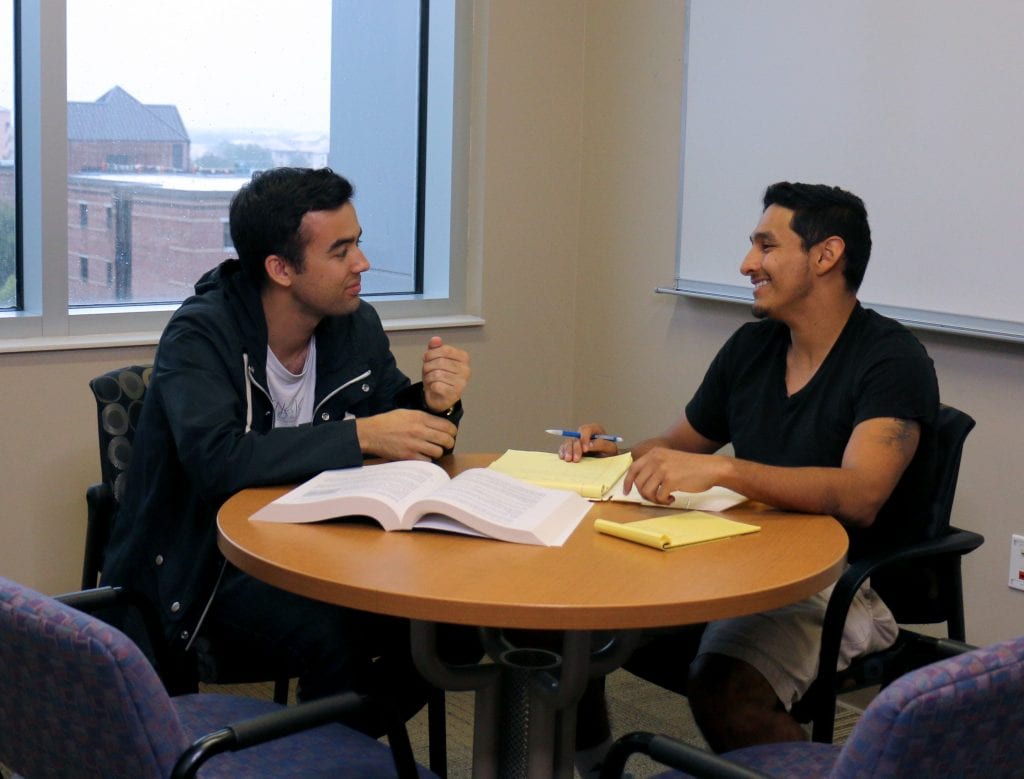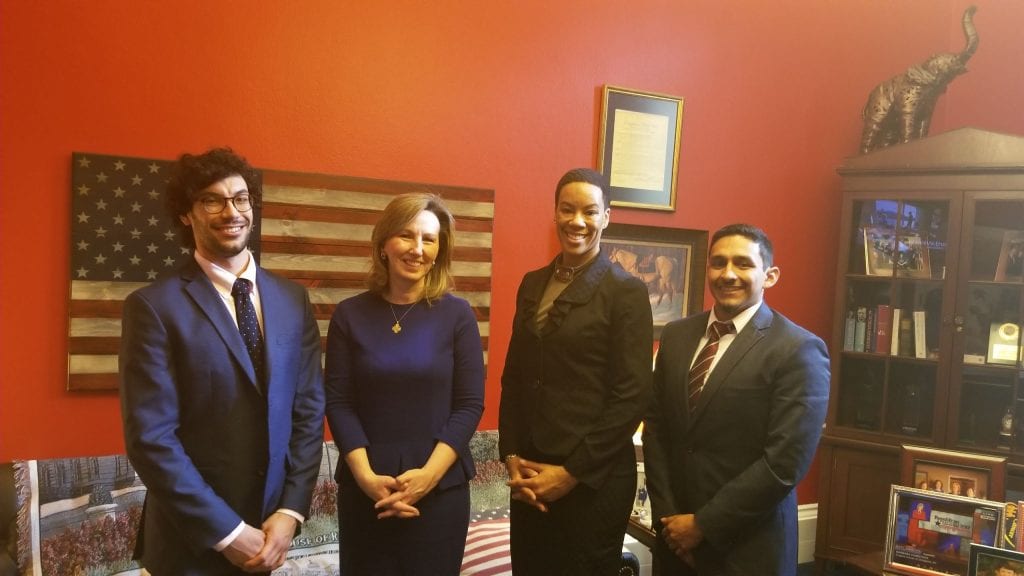Physics Ph.D. Student Promotes Inclusion

Brian Zamarripa (right) studies with a fellow physics student.
UCF is one of six universities paving the way for underrepresented minority students to earn graduate physics degrees.
According to an article published in the journal Nature, African Americans, Hispanic Americans and Native Americans make up about one-third of university-age citizens in the United States, however, less than 11 percent of bachelor’s degrees are awarded to people in those groups.
The American Physics Society saw a way to give underrepresented students a fair chance at attaining graduate-level degrees with the Bridge Program. The program helps students who typically would not gain acceptance into a physics doctoral program immediately after their undergraduate studies, by enhancing their academic and research skills before applying to a doctoral program. UCF was selected as one of six institutions prepared to integrate these students into the department in 2015. One of those students is Brian Zamarripa-Roman.
Zamarripa was raised in El Paso, Texas, by his mother and father along with three siblings. He was gifted in math and sciences and excelled in physics. His mother, while she held a bachelor’s degree in criminal justice, stayed home to care for her children. Zamarripa’s father worked as a truck driver, landscaper, among other things to provide for the family, until a tragic accident ended his life when Zamarripa was a junior in high school.
As a result of his unexpected death, Zamarripa began applying himself academically at the time he would only play video games and watch TV. Due to his intellectual gifts, he was accepted into an engineering college, but worked at Burger King and sold car parts to take care of his mom and siblings. While trying to provide and suffering from a lack of motivation in his engineering courses, it hit him.
“My dad gave his life trimming palm trees for me to be here,” he said. “He literally gave his life for me to live mine – and it really woke me up.”

Brain (right) meeting with Rep. Barbara Comstock and two other APS Bridge Program students.
That’s when he switched his degree from engineering to physics, where he excelled. With a Ph.D. in mind and graduation approaching, a professor asked him if he applied to graduate school. Zamarripa says he didn’t, not only because he didn’t have resources to pay for applications, but because he didn’t have the focus to prioritize the GRE and graduate application deadlines.
His professors told him about the APS Bridge Program. Zamarripa applied with his drive renewed, and was accepted into the physics doctoral program at UCF, and he’s been an advocate for the underrepresented ever since.
The APS recognizes behind each CV is a story, many similar to Zamarripa. Whether it was family circumstances or lack of financial resources that stopped a bright, talented student from taking the required (and expensive) GRE, the Bridge Program gives minority students a second chance at graduate school – and a second chance at a career in physics.
“I took my first physics class as a junior in high school,” he said. “I fell in love with how the universe worked and how it all made sense.”
Last year Zamarripa was awarded an NSF Fellowship for his work in physics education research. Under his advisor, Jackie Chini, he researches how minorities and women perceive the science community. He is becoming a voice for those who the door to a career in STEM is not yet opened. Without the Bridge Program, Zamarripa would not have entered graduate school.
“Physics saved my life,” he said. “It gave me the means to have my own apartment and my phone. I don’t have to sell car parts ever again. I support people who are pushed away from physics.”
It is Zamarripa’s success in the Bridge Program that took him to Capitol Hill to tell his story to congresspeople to raise awareness of the accomplishments made possible by the APS Bridge Program. Even as federal funding runs out, the program continues to be a successful initiative to increase diversity in physics Ph.Ds. The APS says it hopes the American Chemical Society and the American Geophysical Union will introduce their own programs.
